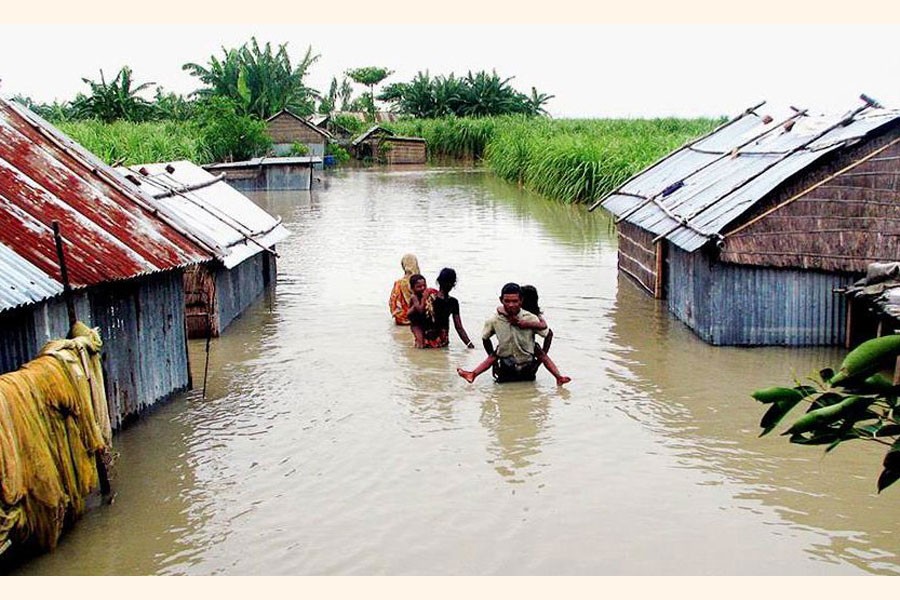Civil soceity organisations urge self-funded disaster resilience plans instead of debt based solutions

Published :
Updated :

Civil society organisations (CSOs) on Monday called for adopting self-funded regional priority plans for disaster resilience instead of relying on debt-driven initiatives.
They also demanded that UN agencies and international NGOs refrain from direct project implementation, creating space for local NGOs to lead.
Speaking at a human chain in front of the National Press Club in Dhaka, marking the 34th anniversary of the devastating cyclone "Mary-An" of April 29, 1991, they urged greater investments in sustainable waste management and climate-resilient, saline-free water treatment plants.
They also emphasised the need for sustainable concrete embankments to protect coastal lives, assets, and agriculture, demanding greater accountability from the Water Development Board to local government institutions.
The event was jointly organised by Sundarban Upakul Surokkha Andolon, ARBAN, Udayan Bangladesh, Keraniganj Human Development Society, SDO, Unnayan Dhara Trust, COAST Foundation, EquityBD, and Unnayan Sabolombi Sangstha, among others.
Director of EquityBD Mustafa Kamal Akanda moderated the event while the programme was chaired executive director of COAST Foundation Rezaul Karim Chowdhury.
Shaheda Khatun from Youth Action Development stressed the urgency of investing in sustainable waste management, including faecal sludge treatment and plastic recycling facilities, to ensure a habitable future.
Shahriar Shawon from Water Keepers Bangladesh focused on the destruction of mangrove forests due to projects like Rampal and Matarbari, calling for a shift towards renewable energy.
MA Hasan pointed out that despite adopting a 20-year national strategy for internal displacement management, little progress has been made, stressing the need for prioritised investments.
Nikhil Chandra Bhadra from Sundarban Upakul Surokkha Andolon lamented the persistent neglect of coastal protection even after 34 years.
Mustafa Kamal Akanda said that UN agencies and international NGOs should refrain from direct project implementation and instead create space for local NGOs to take the lead.
He said that the time has come to foster self-respect and self-reliance by establishing equitable and dignified partnerships between international and domestic organisations.
Rezaul Karim Chowdhury demanded the government allocate Tk 20 billion to build concrete embankments and promote freshwater treatment technologies, ensuring disaster resilience without incurring additional debt.


 For all latest news, follow The Financial Express Google News channel.
For all latest news, follow The Financial Express Google News channel.